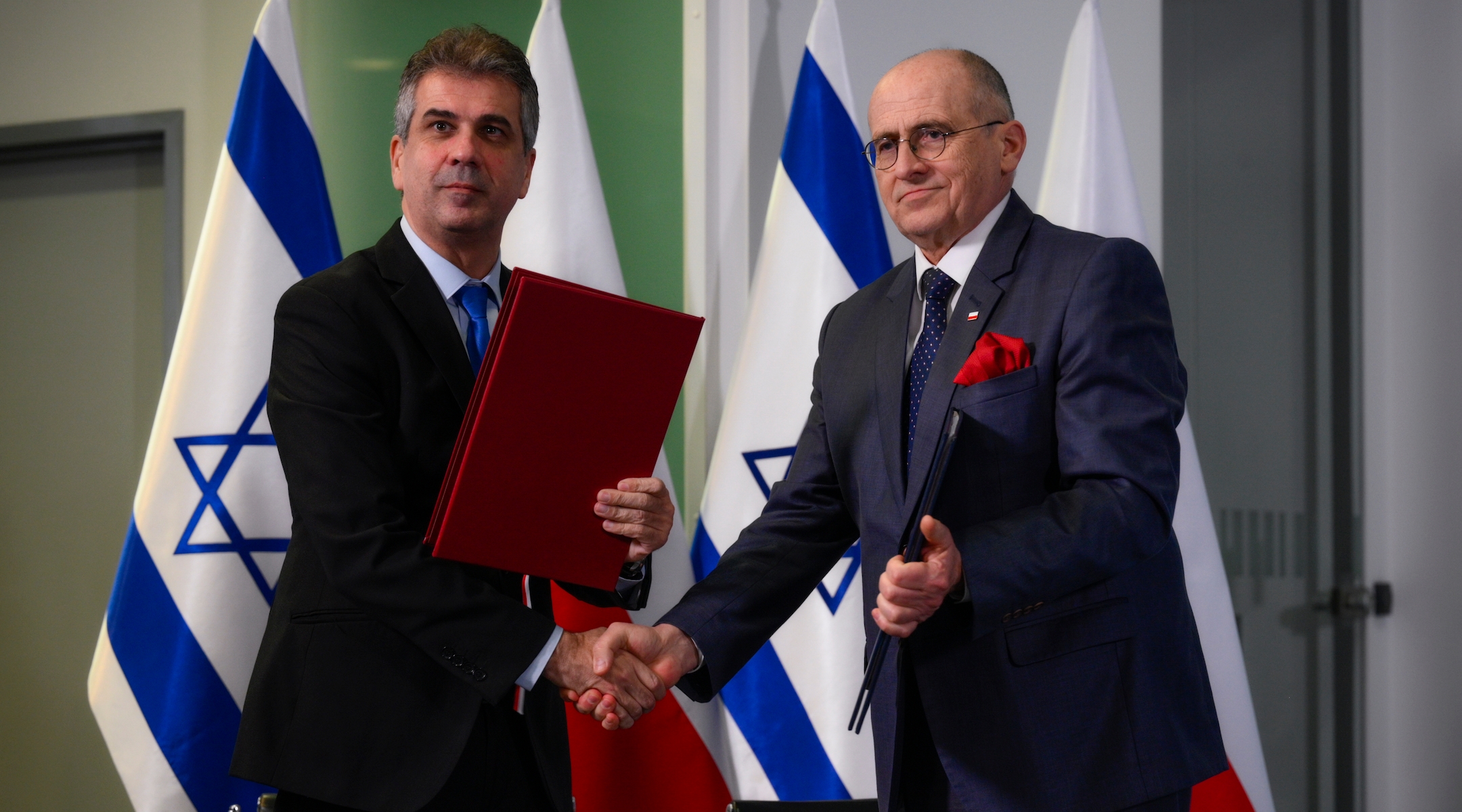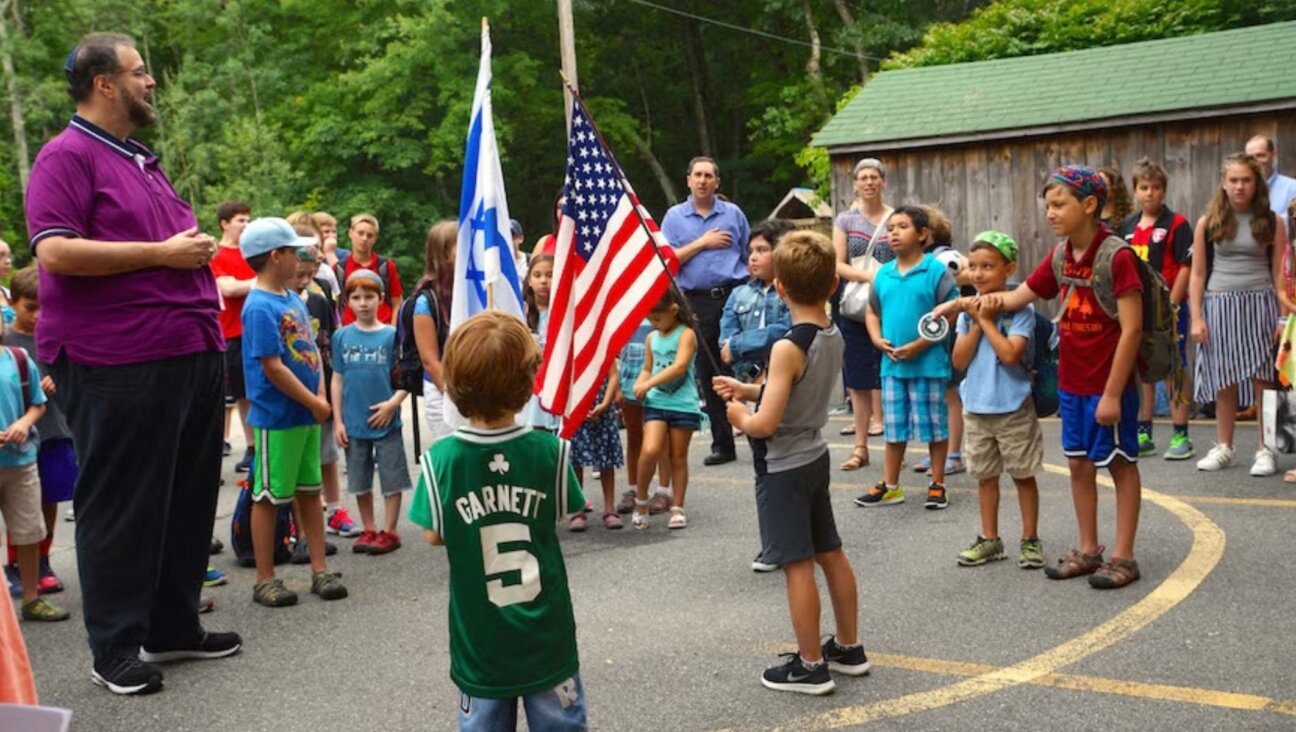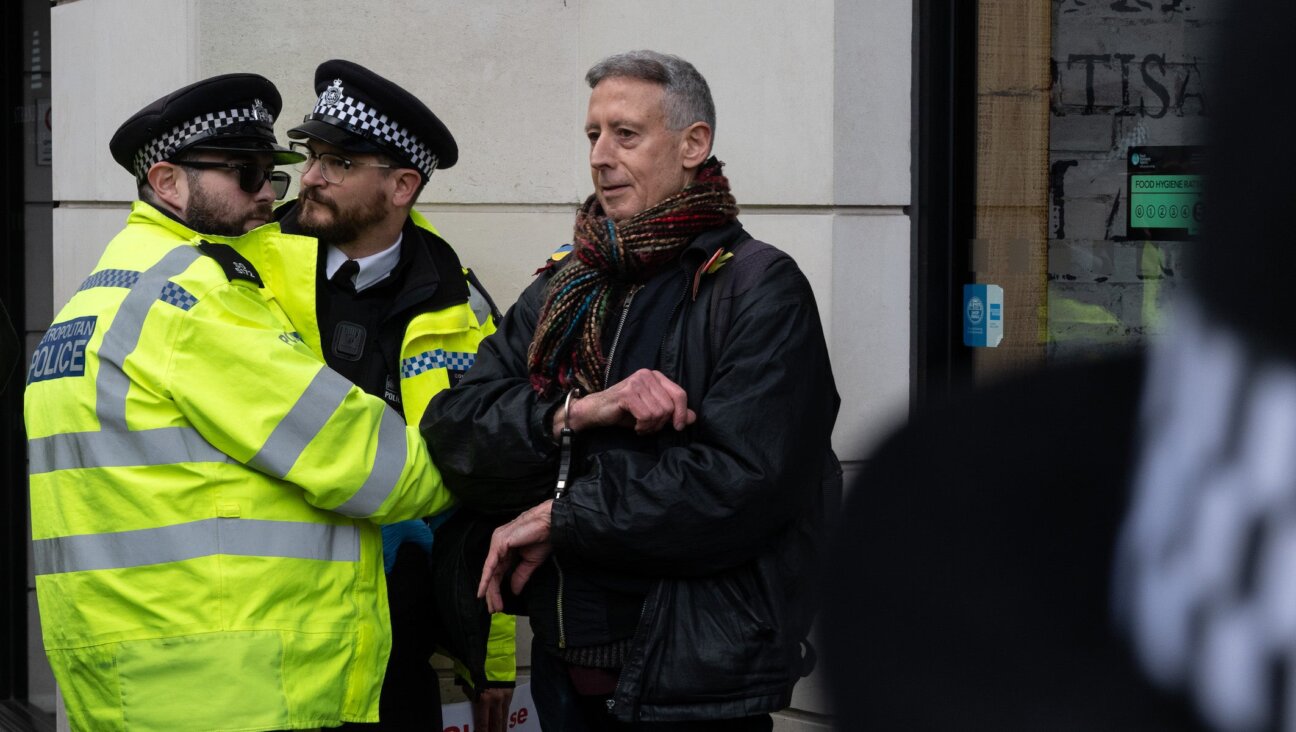Yad Vashem denounces Poland’s demanded additions to Israeli student trips as ‘inappropriate’
As part of an agreement to resume Israeli student trips to Holocaust sites, Poland stipulated that the students also visit sites of ‘other crimes of World War II’

Israeli Foreign Minister Eli Cohen, left, meets with Polish Foreign Minister Zbigniew Rau in Warsaw, March 22, 2023. (Jaap Arriens/NurPhoto via Getty Images)
(JTA) — When Israel and Poland agreed to resume Israeli youth trips to Polish Holocaust sites last month, their agreement stipulated that new sites be added to the students’ itineraries, including some that document Nazi crimes against non-Jewish Poles. Yad Vashem, Israel’s Holocaust memorial and history authority, is now calling those additions “inappropriate” and “problematic.”
In statements to Haaretz published on Monday, leading historians condemned the development, arguing that the new trip rules advance what they call Poland’s track record of obscuring its Holocaust record.
The new list of required sites for students to see are “dubious at best and controversial at worst,” said Havi Dreifuss, a Tel Aviv University history professor affiliated with Yad Vashem. She added that some of the sites “ignore documented aspects of Poles’ involvement in the murder of Jews,” or even “glorify Poles who were involved up to their necks in the murder of Jews.”
“What you have there is the ‘Polish wish-list’ of where Israeli youth should go,” said Jan Grabowski, a professor who studies Polish-Jewish Holocaust history and has been prosecuted in Poland over some of his research conclusions. “It reads like a Holocaust denier’s dream.”
Youth trips to Holocaust sites in Poland have long been part of a longstanding educational program in Israel. They were suspended last year amid a series of diplomatic spats between Poland and Israel fueled mostly by a push by Poland’s right-wing government to highlight German crimes against Poles during World War II. Historians around the world have argued that the campaign — which included multiple laws that drew harsh responses from Jerusalem — has also sought to downplay Polish crimes against local Jews before, during and after the Holocaust.
Israeli Prime Minister Benjamin Netanyahu was critical of those recent Polish laws, but since assembling the most right-wing government in Israel’s history earlier this year, lawmakers have pushed for renewing ties. After meeting with his Polish counterpart last month, Israeli Foreign Minister Eli Cohen declared that the countries’ “crisis” in relations was over. Cohen and Polish Foreign Minister Zbigniew Rau signed an agreement stating that Israeli youth trips to Holocaust sites in Poland would resume, pending approval in the Knesset, or Israel’s parliament. Poland also agreed to reinstate its ambassador to Israel.
Soon after the signing, Poland’s deputy foreign minister noted in a statement that Israeli students would learn on the trips “what [Poland] as a country and as a nation have been through and what we have survived.” The Israeli students will also meet with Polish youths, Paweł Jabłoński added, “to combat negative stereotypes that exist in Israel regarding Poland.”
Now details are being released to the public, Haaretz reported. In addition to touring Jewish-specific sites, students will also be required to visit at least one site per trip related to “other crimes of World War II,” which include museums focused on Nazi crimes against non-Jewish Poles.
Included in the list of additional sites is the Markowa Ulma-Family Museum of Poles Who Saved Jews in World War II —which tells the story of a Polish family who were killed for hiding eight Jews in their house. Other museums that highlight the “forsaken” or “doomed” Polish soldiers who rebelled against Communist forces in the aftermath of the war. Grabowski said that many of those soldiers were “ruthless murderers of Jews during and after the war.”
Israel’s education ministry and Yad Vashem both said that they have not agreed to modify the trips.
“Every tour that took place in the past can take place exactly as it was and with no changes in the future. The Poles have asked to add sites to the list, yet there is no such commitment to tour one site or another,” the ministry wrote in a statement to Haaretz.
Yad Vashem wrote that students sent through its programs “will not visit any site that is suspected of twisting the history of the Holocaust or promoting a historically incorrect narrative.”
This article originally appeared on JTA.org.













